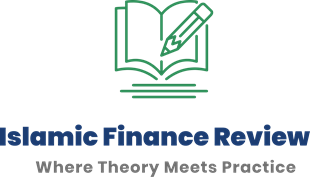
5 Common Misconceptions About Islamic Banking (And Why They Matter)
- Post by: wp-islamicfinancereviewcouk
- April 25, 2025
- No Comment
🕌 Introduction
Islamic banking continues to grow around the world, yet many people — even Muslims — still don’t fully understand what makes it different from conventional finance. Misunderstandings lead to mistrust, and that prevents people from benefiting from a system rooted in fairness, justice, and accountability.
In this post, we’ll clear up five of the most common misconceptions about Islamic banking, and explain why it’s essential to get the facts straight — especially when our financial choices should align with our faith.
❌ Misconception 1: “Islamic banks don’t charge any interest — they give free money.”
✅ Reality: Islamic banks do not charge riba (interest) — but they do earn profit through Shariah-compliant contracts.
Instead of interest, Islamic banks engage in permissible business transactions, such as:
- Murabaha: Selling goods at a known profit margin
- Ijara: Leasing assets
- Mudarabah/Musharakah: Sharing profits based on partnership
📖 Qur’anic Evidence:
“Allah has permitted trade and forbidden riba (interest).”
— [Surah Al-Baqarah 2:275]
Why it matters: Profit from trade is halal, but riba is exploitative and forbidden. Islamic banks follow this distinction by using real contracts with underlying assets.
❌ Misconception 2: “Islamic banks are just conventional banks with Arabic names.”
✅ Reality: Islamic banks operate under a completely different legal and ethical framework, supervised by Shariah boards.
While both types of banks offer similar services (like accounts, cards, or financing), Islamic banks must ensure their operations:
- Avoid prohibited industries (e.g., alcohol, gambling)
- Follow Shariah rules in every contract
- Submit to external Shariah audits
📖 Prophetic Guidance:
“Leave that which makes you doubt for that which does not make you doubt.”
— [Hadith, Tirmidhi]
Why it matters: The resemblance in structure does not mean the principles are the same. The intention (niyyah) and contracts used in Islamic finance are what set it apart.
❌ Misconception 3: “Islamic finance is only for Muslims.”
✅ Reality: Islamic finance is based on universal ethical principles, not exclusive membership.
It promotes fairness, transparency, and social responsibility — values that appeal to all. In fact, non-Muslim governments like the UK, Hong Kong, and South Africa have issued Sukuk (Islamic bonds) because of their stability and appeal to ethical investors.
📖 Qur’anic Ethos:
“And We have not sent you [O Muhammad], except as a mercy to the worlds.”
— [Surah Al-Anbiya 21:107]
Why it matters: Islamic finance is not just for Muslims — it’s for anyone seeking ethical and interest-free alternatives to conventional finance.
❌ Misconception 4: “Shariah-compliance just means avoiding interest and alcohol.”
✅ Reality: Islamic finance is about building a just and responsible economy — not just avoiding haram.
Yes, it avoids riba, alcohol, gambling, and unethical industries. But beyond that, it encourages:
- Fair treatment in contracts
- Risk-sharing
- Investing in real assets
- Helping the community through zakat, waqf, and microfinance
📖 Qur’anic Principle:
“…And cooperate in righteousness and piety, but do not cooperate in sin and aggression.”
— [Surah Al-Ma’idah 5:2]
Why it matters: A narrow view of Islamic finance misses the point. It’s not just about avoiding sin, but promoting good in the economy.
❌ Misconception 5: “Islamic finance is outdated and can’t keep up with technology.”
✅ Reality: Islamic finance is engaging with fintech, digital banking, and blockchain — but with a cautious and values-driven approach.
Shariah encourages innovation as long as it stays within ethical limits. Today, we have:
- Islamic fintechs like Wahed, Shirkah, and Insha
- Digital sukuk and halal crypto projects
- Shariah-compliant crowdfunding platforms
📖 Prophetic Teaching:
“Wisdom is the lost property of the believer; wherever he finds it, he has more right to it.”
— [Hadith, Tirmidhi]
Why it matters: Islamic finance is not anti-innovation — it seeks innovation with integrity.
🌟 Final Thoughts: Why These Misconceptions Matter
Misconceptions keep people from benefiting from a system that promotes justice and ethical values. Islamic finance is not perfect — but it is principled. By understanding what it really is (and what it’s not), we can make informed decisions that align with both our values and our financial goals.
At Islamic Finance Review (IFR), we aim to simplify, clarify, and humanise Islamic finance for the modern world. One myth at a time.
📣 Coming Next in the Series
“What Every Muslim Should Know Before Opening an Islamic Bank Account”
Subscribe to our blog or follow us on LinkedIn to stay informed.
